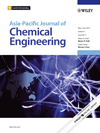
Asia-Pacific Journal of Chemical Engineering
Scope & Guideline
Innovating the Future of Chemical Engineering in the Asia-Pacific.
Introduction
Aims and Scopes
- Chemical Process Engineering:
Research on the design, optimization, and simulation of chemical processes, including reaction engineering, separation processes, and heat transfer. - Environmental Engineering:
Studies aimed at understanding and mitigating environmental impacts through innovative technologies for waste treatment, pollution control, and resource recovery. - Materials Science and Engineering:
Development and characterization of advanced materials, including nanomaterials, polymers, and composites, with applications in energy, electronics, and biomedical fields. - Catalysis and Reaction Engineering:
Exploration of catalytic processes for chemical transformations, including biomass conversion, CO2 utilization, and sustainable synthesis methods. - Computational Methods and Modeling:
Application of computational tools and modeling techniques, such as CFD and machine learning, to predict and optimize chemical processes and systems. - Energy Engineering:
Investigation of energy conversion processes, renewable energy technologies, and efficiency improvements in chemical engineering applications.
Trending and Emerging
- Sustainable and Green Chemistry:
An increasing focus on sustainable practices, including the development of green solvents, waste valorization, and eco-friendly catalytic processes, reflects a shift towards environmentally responsible chemical engineering. - Nanotechnology and Advanced Materials:
Research on nanomaterials and their applications in various fields, including energy storage, catalysis, and environmental remediation, is prominently trending, showcasing the interdisciplinary nature of modern chemical engineering. - Machine Learning and AI in Chemical Engineering:
The integration of artificial intelligence and machine learning techniques for process optimization, predictive modeling, and data analysis is gaining significant traction in current research. - Biochemical Engineering and Biotechnology:
Emerging themes in biochemical engineering, particularly those related to biofuels, bioprocessing, and bioremediation, are increasingly prevalent as the demand for sustainable solutions grows. - Energy Storage and Conversion Technologies:
Research focusing on innovative energy storage systems, including batteries and supercapacitors, as well as energy conversion technologies, is rapidly expanding, reflecting global energy challenges.
Declining or Waning
- Traditional Chemical Manufacturing Processes:
Research related to conventional manufacturing processes is becoming less prevalent, as the focus shifts towards more sustainable and innovative methods. - Conventional Separation Techniques:
Studies centered on traditional separation processes, such as distillation and conventional filtration, are declining in favor of advanced separation technologies, including membrane and adsorption methods. - Static Analytical Methods:
The use of static methods for analysis and characterization is waning as dynamic and real-time monitoring techniques gain popularity in chemical process analysis. - Heavy Industry Applications:
Research specifically focused on heavy industry applications is less frequently published, possibly due to a growing emphasis on greener technologies and sustainability. - Basic Chemical Education:
Papers focused on foundational chemical engineering education are becoming less common as the journal emphasizes applied research and practical innovations.
Similar Journals

Results in Engineering
Transforming Challenges into Breakthroughs in EngineeringResults in Engineering is an esteemed open-access journal published by Elsevier, dedicated to advancing the field of engineering through high-quality, innovative research. Since its inception in 2019, this journal has rapidly established itself within the academic community, evidenced by its prestigious Q1 ranking in the Engineering (miscellaneous) category for 2023 and a remarkable ranking of #54 out of 307 in General Engineering according to the Scopus database, placing it in the 82nd percentile of its category. Located in the Netherlands, Results in Engineering provides a global platform for researchers, professionals, and students to disseminate their findings and foster collaboration across diverse engineering disciplines. The journal's commitment to open access ensures that valuable research is accessible to a wider audience, fostering innovation and knowledge sharing. With a progressive approach to publication, Results in Engineering seeks to enhance the engineering landscape by publishing cutting-edge studies that address contemporary challenges and solutions in the field.
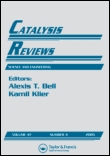
CATALYSIS REVIEWS-SCIENCE AND ENGINEERING
Elevating Standards in Catalysis Research and ReviewsCATALYSIS REVIEWS - SCIENCE AND ENGINEERING, published by Taylor & Francis Inc, is a leading journal in the field of catalysis, providing a vital platform for the dissemination of rigorous research and comprehensive reviews from 1968 to the present. With an impressive Q1 ranking in multiple categories, including Catalysis and Chemistry, this journal stands out as an essential resource for professionals, researchers, and students alike. Its high impact factor and esteemed Scopus ranks — including 3rd in Chemical Engineering: Process Chemistry and Technology — highlight the journal's influence and prestige within the scientific community. While primarily a subscription-based publication, the journal’s commitment to advancing the understanding of catalytic processes continues to foster innovation in various industrial applications, making it indispensable for anyone engaged in the fields of chemical engineering and applied chemistry.

KOREAN JOURNAL OF CHEMICAL ENGINEERING
Innovating the Future of Chemical Engineering.The Korean Journal of Chemical Engineering is a prestigious publication by the Korean Institute of Chemical Engineers, dedicated to advancing the field of chemical engineering and its associated sciences. Established in 1984, this journal has made significant contributions to the dissemination of innovative research, covering a broad spectrum of topics within chemical engineering and general chemistry. With a current impact factor placing it in the Q2 quartile within both the chemical engineering and chemistry categories, it is recognized for its rigorous peer-review process and high-quality articles. The journal provides a valuable platform for researchers, professionals, and students to share their findings and collaborate on emerging methodologies and technologies. Although it does not offer open access options, its broad international readership, bolstered by its Scopus rankings — including a commendable #108 in general chemical engineering — ensures widespread visibility and dissemination of published works. As it approaches its 40th anniversary in 2024, the Korean Journal of Chemical Engineering continues to be an essential resource for anyone engaged in the field, driving innovation and academic dialogue worldwide.

ChemEngineering
Advancing Chemical Engineering Knowledge for a Sustainable FutureChemEngineering is a prominent open-access journal published by MDPI that has been dedicated to the dissemination of high-quality research in the field of chemical engineering since its inception in 2017. Operating out of Switzerland, this journal addresses a diverse range of topics, including energy production, process optimization, and innovations in materials science, thereby attracting contributions from researchers and professionals worldwide. With an impressive Q2 ranking in Chemical Engineering and Engineering, as well as a Q3 ranking in Energy for 2023, ChemEngineering is positioned as a crucial platform for advancing knowledge in its fields. The journal's commitment to open access ensures that its content is readily available to a broad audience, promoting the free exchange of ideas and fostering collaborations. Researchers, professionals, and students alike benefit from the journal's focus on cutting-edge research, making it an essential resource for anyone interested in the ever-evolving landscape of chemical engineering.
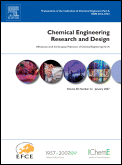
CHEMICAL ENGINEERING RESEARCH & DESIGN
Innovating Solutions, Designing the Future.CHEMICAL ENGINEERING RESEARCH & DESIGN is a prestigious journal that has been at the forefront of dissemination in the fields of chemical engineering and general chemistry since its inception in 1983. Published by Elsevier, the journal features a rich array of research articles that contribute to both theoretical and practical advancements in the discipline. With an impact factor that positions it strongly within the Q2 quartile for both Chemical Engineering and Chemistry categories, it occupies an esteemed place in the academic community, being ranked #77 out of 273 in Chemical Engineering and #111 out of 408 in General Chemistry on Scopus. Researchers and professionals will find it an invaluable resource for cutting-edge research and innovative methodologies that shape the future of chemical engineering applications. While the journal does not currently offer open access, it remains accessible through institutional subscriptions, ensuring that important findings continue to reach a broad audience. With a scope that is poised to expand through 2024, the journal aims to foster collaboration and knowledge sharing, supporting the continuous evolution of the field.

Engineering Review
Fostering innovation in engineering disciplines.Engineering Review is a prominent academic journal published by the University of Rijeka, Faculty of Engineering in Croatia. As an emerging outlet in the field of engineering, the journal has been providing a platform for interdisciplinary research since its inception in 2011, with a commitment to disseminating high-quality studies up to the horizon of 2024. Although currently categorized as Q4 in the Engineering (miscellaneous) section and ranking 242 out of 307 in General Engineering per Scopus metrics, the journal aims to bolster its impact and reach within the engineering community. With a focus on innovative approaches and practical applications in various engineering disciplines, Engineering Review invites contributions from researchers, professionals, and students alike, fostering a collaborative environment for the advancement of engineering research in a global context. While it is not an open-access journal at this time, it remains a vital resource for those engaged in cutting-edge engineering endeavors.
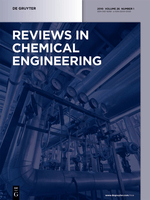
REVIEWS IN CHEMICAL ENGINEERING
Advancing Knowledge in Chemical Engineering.REVIEWS IN CHEMICAL ENGINEERING, published by Walter de Gruyter GmbH, is a premier journal that delivers cutting-edge insights and comprehensive reviews in the field of chemical engineering. Established as an eminent resource since 1982, this journal is committed to advancing knowledge and fostering innovation in various domains of chemical engineering, including process design, materials, and environmental considerations. With an impressive Q1 ranking in the 2023 Scopus category for Chemical Engineering and a commendable 20th position out of 273 journals, it is recognized for its rigorous peer-review process and high-impact contributions. Although it operates under a subscription model, the journal remains a vital platform for researchers and professionals aiming to stay at the forefront of technological advancements and scholarly discourse in chemical engineering. With a focus on interdisciplinary applications and real-world relevance, REVIEWS IN CHEMICAL ENGINEERING is an indispensable resource for academics, industry professionals, and students dedicated to excellence in this field.

CHEMIE INGENIEUR TECHNIK
Driving Innovation in Chemistry and Manufacturing Engineering.CHEMIE INGENIEUR TECHNIK, published by WILEY-V C H VERLAG GMBH, stands as a significant academic journal in the fields of Chemical Engineering, Chemistry, and Industrial and Manufacturing Engineering. With an ISSN of 0009-286X and an E-ISSN of 1522-2640, this esteemed journal has been contributing to the body of knowledge since 1949 and plans to continue its legacy until 2024. Notably, the journal holds a Q2 quartile ranking in 2023 across various categories, illustrating its recognized impact and relevance within the scientific community, with Scopus ranks indicating it falls within the top 60th to 51st percentiles of its respective fields. Although currently not open access, CHEMIE INGENIEUR TECHNIK provides readers with comprehensive insights into contemporary research, technological advancements, and practical applications, making it an essential resource for researchers, professionals, and students who are keen to stay abreast of developments in chemical processes and engineering advancements.
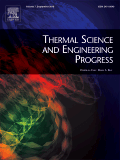
Thermal Science and Engineering Progress
Bridging theory and practice in thermal science.Thermal Science and Engineering Progress is a premier peer-reviewed journal published by ELSEVIER, established to bridge the gap between theoretical and practical advancements within the fields of thermal science and engineering. Since its inception in 2017, this esteemed journal has rapidly ascended to a Q1 ranking in the category of Fluid Flow and Transfer Processes, positioning it among the top 17 of 96 journals in this discipline, as reflected by its impressive 82nd percentile ranking in Scopus. With a focus on disseminating high-impact research, Thermal Science and Engineering Progress aims to foster innovation and collaboration by publishing cutting-edge studies that address both contemporary challenges and future directions in thermal management, energy conversion, and heat transfer technologies. Researchers, professionals, and students alike are invited to explore the wealth of knowledge contained within its pages, which are accessible from its headquarters in Amsterdam, Netherlands. This journal plays a critical role in advancing technological progress and fostering a deeper understanding of thermal processes, making it an essential resource for anyone dedicated to these crucial areas of study.
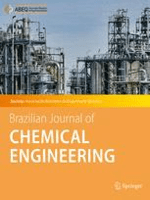
BRAZILIAN JOURNAL OF CHEMICAL ENGINEERING
Pioneering Research for Tomorrow's ChallengesThe Brazilian Journal of Chemical Engineering (ISSN: 0104-6632, E-ISSN: 1678-4383), published by Springer Heidelberg, stands as a prominent open-access journal dedicated to disseminating innovative research and advancements in chemical engineering since its inception in 1997. With a commitment to enhancing knowledge exchange within the field, this journal is indexed in Scopus, earning a respectable Q3 rank in the category of General Chemical Engineering as of 2023. It provides a platform for researchers, professionals, and students to explore a diverse range of topics, fostering collaboration and innovation from its base in Brazil. The journal has converged its operations from 1995 and will continue to push the boundaries of chemical engineering research until 2024 and beyond. As a critical resource for up-to-date methodologies and emerging trends, the Brazilian Journal of Chemical Engineering is essential for those aiming to make impactful contributions in this dynamic and evolving field.